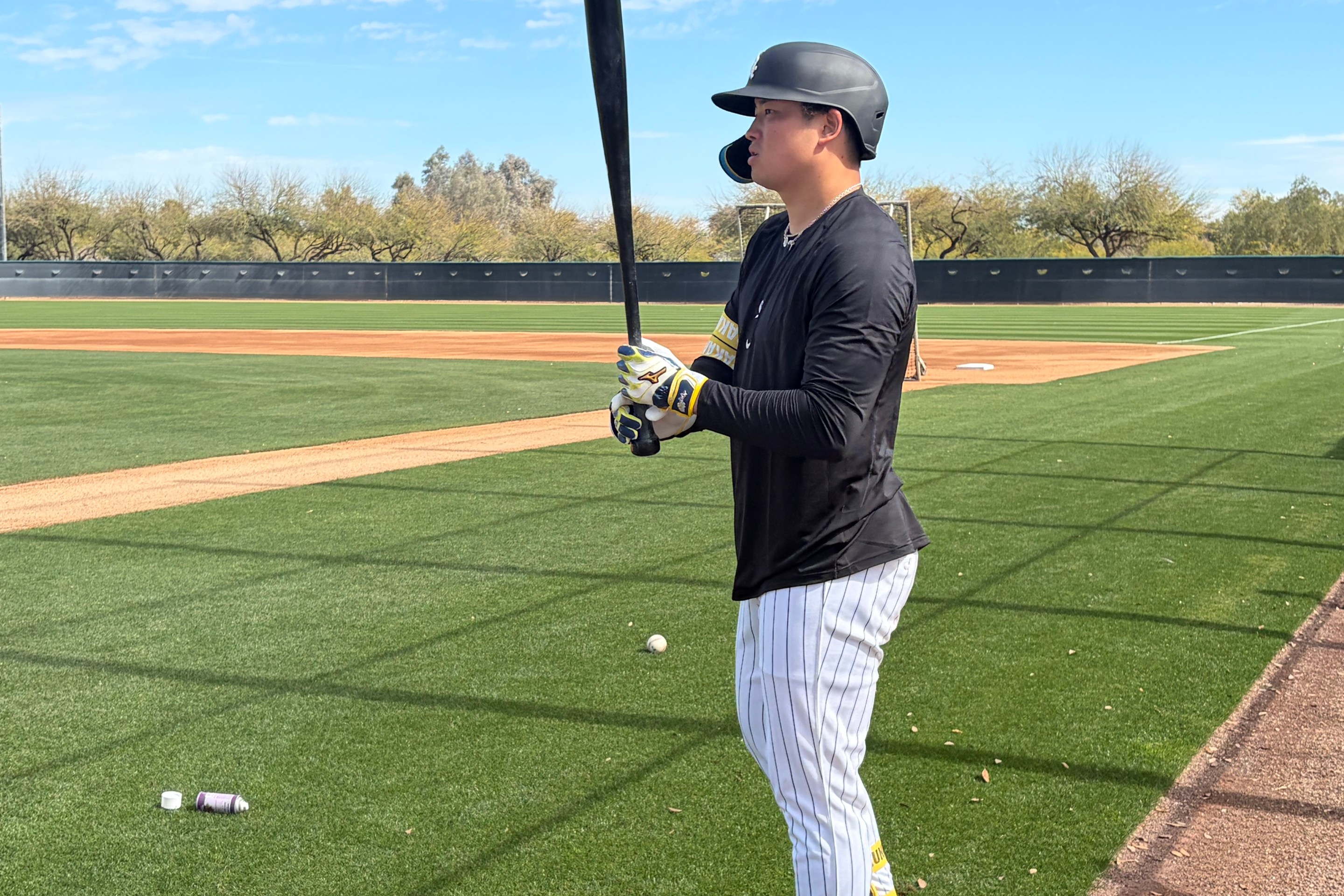A trip through the Sox Machine comment section on a particularly charged day of discussion might include a link to an insightful snippet of an interview, a reference to a Pitching Ninja video showing a pitch grip, an argument repurposed from a years-old Driveline Baseball article, put through three to four rounds of an online game of telephone.
It's a gradual and piecemeal way toward understanding the sport of baseball better.
If you can imagine having professional motivation behind it combined with an still-intact attention span, you'll better understand the origins of White Sox pitching coach Zach Bove; specifically the journey he began when he was asked to take up the same role at the College of Central Florida over a decade ago despite not really pitching in college due to a shoulder injury.
"I remember just diving into Twitter and people that were putting up good content, whether that was [now Red Sox special advisor] Kyle Boddy, [Cubs special assistant] Jerry Weinstein," Bove said. "The more information, the better. Then it's our job as coaches to filter the information. That's maybe where I struggle; I take something I saw from Twitter or an interview and try to apply it, when it's more nuanced than that."
Just as Ethan Katz's time as Lucas Giolito's high school pitching coach obscured a more traditional climb up the minor league ladder, Bove's hitting-to-pitching coach transition in his JUCO days predate the Twins hiring him to be the pitching coach at their Gulf Coast League affiliate in 2019. He views access to the proprietary information and shared coaching wisdom that comes with working for a team as another seismic inflection point in the growth of his knowledge base, but more so all the opportunities to try out new grips with different pitchers, to learn new terminology for different elements of the delivery and be exposed to how a lot of different bodies throw.
"You need reps," Bove said. "That's what I think coaching is: It's pattern recognition and it's reps. If you only stay in the theory aspect of things and never dive in, you're not really maximizing yourself and I don't think you're going to help the player."
More than any other part of his backstory, Bove's last three years helping players with the Royals provide simpler items to point to for what he could bring to the White Sox pitching coach job, trying to enable a similar journey from triple-digit losses to MLB respectability.
Even if Sox media hadn't harped upon the wide disparity between how the South Siders and the Royals have controlled opposing running games in recent years, Bove noted it's clearly an issue "that's really important to Will [Venable],” judging from their conversations since his hiring. Kansas City pitching has allowed the third-lowest hard-hit rate in MLB over the last two years, and Bove pointed to their success with expanding the arsenals of their starters, mixing in two or even three different fastball shapes to make it that much harder for hitters to square them up. At this point, this trend is well-known and the separator is execution rather than the concept itself. In kind, when a late-season anecdote about Sean Burke's constant practice of a new sinker being revealed as the culprit behind the diminished action his slider was broached, Bove already seemed familiar with the situation.
Bove speaks about combatting the adverse effects of adding pitches similar to how he discusses controlling the running game, where there are no quick fixes other than rigorously staying on top of it and responding to the first signs of slippage. Mapping out what might the signature innovation or strategy of next year's White Sox pitching staff falls back to Bove's original approach to learning about pitching; insight can come from anywhere.
"Being with the Twins, first getting the opportunity to coach in the GCL, I just was exposed to a different way of thinking in terms of how to incorporate technology, how to view pitching development through a more holistic lens," Bove said. "Collaborating with all the different departments; [strength and conditioning], medical, sport science, sport psychology."
With Kansas City, Bove had the fancy suffix of "director of major league strategy" glommed onto his title, but viewed himself as a regular, old assistant pitching coach who helped in however the situation demanded. His reputation for incorporating biomechanical data, or always having a new grip tweak to suggest, even his jiu jitsu, are not these other areas of expertise in Bove's view. It's just that with all the different ways to get pitchers better and the different things it takes, he thinks knowing at least a little about an awful lot is part of the job.
"I'm more of a generalist, but the way I understand is that I want to help the player, and the more knowledge and things you're exposed to, you can boil that down to the player," Bove said. "I look at a ton of slo-mo video of bullpens and in-game stuff, of our own guys and across the league. If there's a certain pitch that's interesting to me, with the technology we have I can search it and see how the guy grips it. You can kind of search Twitter and Pitching Ninja and if they have an interview on it, you can hear about what they think.
"It's really just trial and error. It's a ton of reps on every avenue possible. So when you present it in front of a pitcher who needs a change of grip, you kind of have this rolodex [of grips and cues]. We're going to try this one, or this one if that doesn't work. In a perfect world, it works the first time. But it rarely works like that. You need multiple iterations to find the one that works for that specific pitcher."
Like seemingly every Venable assistant coach to date, Bove has no previous ties to his new manager, and more knew Brian Bannister by reputation than anything else. Rather than lining up on a specific philosophy, or both raving about seam-shifted wake, Bove described his initial conversation with the team's senior advisor to pitching as "educating me on the White Sox and where they've been and where they're going."
"Obviously he's a very intelligent guy so learning a ton from him, the communication has been great," Bove said. "That was a big factor in this decision; someone I could work alongside with, that I could trust."
Due the copycat nature of the league, the constant flux of the White Sox roster, or the dynamic that pitchers are trying to find new looks and angles that hitters' swings aren't geared for, the next effective adjustment or commodity or pitching style that drives an effective Sox pitching staff should be something we haven’t talked about before around these parts. Or at least, until the personnel grows unambiguously stronger, something unexpected.
"I want to zig when others are zagging," Bove said.
Finding it will require some misfires, some unsuccessful experiments. Hopefully, it will be seen as someone really trying to find the answer.
"I'm definitely not shy about my background," said Bove, who did not reach affiliated ball as a player. "I understand I don't have certain experiences. But if I don't have the answer, I'm going to try to set that pitcher or staff member up with someone who does. That's just being honest with my strengths and weaknesses. When it comes to getting buy-in from the player, I think guys just want to know if you can get them better."






